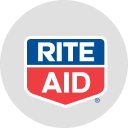
Cvs Headache Relief Coupons & Cvs Headache Relief Savings Card
generic Cvs Headache Relief
This product is a combination of aspirin, acetaminophen, and caffeine. It is used for the temporary relief of pain from conditions such as muscle aches, toothaches, menstrual cramps, or headaches (including migraine). Aspirin and acetaminophen relieve pain by keeping your body from making certain natural substances. Caffeine helps increase the effects of aspirin and acetaminophen.
My prescription
Edit
250-250-65MG, Cvs Headache Relief (30 Tablets)
Select pharmacy

Walgreens
$2.00

Rite Aid
$2.91

Publix
$4.86

Albertsons
$12.34

Walmart
$12.89

Kroger
$19.92
Show this card to your pharmacist This card is not insurance
This card is not insurance

Walgreens
$2.00
BIN
ID
PCN
GRP
019876
LH42B3A86E
CHIPPO
LHX
Powered by
Warnings
One ingredient in this product is acetaminophen. Taking too much acetaminophen may cause serious (possibly fatal) liver disease. Adults should not take more than 4000 milligrams (4 grams) of acetaminophen a day. People with liver problems and children should take less acetaminophen. Ask your doctor or pharmacist how much acetaminophen is safe to take. Do not use with any other drug containing acetaminophen without asking your doctor or pharmacist first. Acetaminophen is in many nonprescription and prescription medications (such as pain/fever drugs or cough-and-cold products). Check the labels on all your medicines to see if they contain acetaminophen, and ask your pharmacist if you are unsure. Get medical help right away if you take too much acetaminophen (overdose), even if you feel well. Overdose symptoms may include nausea, vomiting, loss of appetite, sweating, stomach/abdominal pain, extreme tiredness, yellowing eyes/skin, and dark urine. Daily alcohol use, especially when combined with acetaminophen, may damage your liver. Avoid alcohol.
Side Effects
Nausea, vomiting, stomach upset, trouble falling asleep, or a shaky/nervous feeling may occur. If any of these effects last or get worse, notify your doctor or pharmacist promptly. If your doctor has directed you to use this medication, remember that your doctor has judged that the benefit to you is greater than the risk of side effects. Many people using this medication do not have serious side effects. Stop taking this medication and tell your doctor right away if you have any serious side effects, including: stomach/abdominal pain that is severe or doesn't go away, severe dizziness, fainting, vomit that looks like coffee grounds, black/bloody stools, ringing in the ears, loss of hearing, irregular/fast heartbeat, signs of kidney problems (such as change in the amount of urine), easy bruising/bleeding. A very serious allergic reaction to this drug is rare. However, get medical help right away if you notice any symptoms of a serious allergic reaction, including: fever, swollen lymph nodes, rash, itching/swelling (especially of the face/tongue/throat), severe dizziness, trouble breathing. This is not a complete list of possible side effects. If you notice other effects not listed above, contact your doctor or pharmacist. In the US - Call your doctor for medical advice about side effects. You may report side effects to FDA at 1-800-FDA-1088 or at www.fda.gov/medwatch. In Canada - Call your doctor for medical advice about side effects. You may report side effects to Health Canada at 1-866-234-2345.
Interactions
Some products that may interact with this drug are: acetazolamide, cimetidine, corticosteroids (such as prednisone), dichlorphenamide, ketoconazole, levoketoconazole, methotrexate, mifepristone, certain medications for gout (such as probenecid, sulfinpyrazone), anti-seizure drugs (such as phenytoin, valproic acid), vemurafenib. Consult your doctor before using this product if you have recently received certain live vaccines (such as varicella vaccine, influenza intranasal vaccine). This medication may increase the risk of bleeding when taken with other drugs that also may cause bleeding. Examples include anti-platelet drugs such as clopidogrel, "blood thinners" such as dabigatran/enoxaparin/warfarin, among others. Check all prescription and nonprescription medicine labels carefully since many medications contain pain relievers/fever reducers (including acetaminophen, aspirin, NSAIDs such as ibuprofen, ketorolac, naproxen). These drugs are similar to this product and may increase your risk of side effects if taken together. Ask your doctor or pharmacist for more details. This medication may interfere with certain lab tests (such as urinary sugar tests, dipyridamole-thallium imaging tests), possibly causing false test results. Make sure lab personnel and all your doctors know you use this drug.
